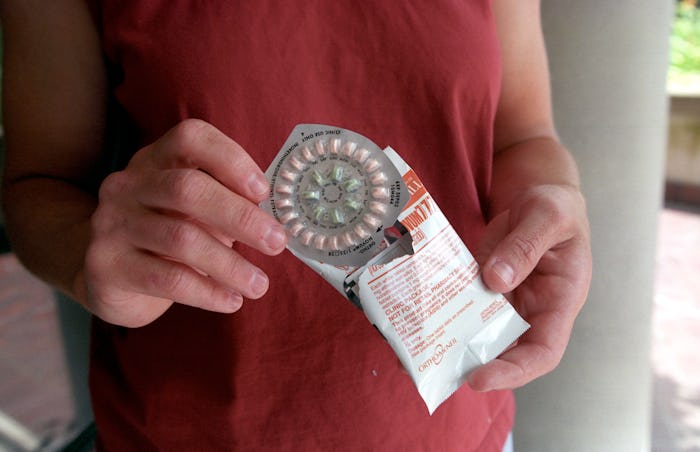Life

Study: OTC Birth Control Pills Are Safe For Teens
Getting a birth control prescription is still a challenge for many women, especially young women under 18 years old. But over the past few years, laws have changed in some states, such as California and Oregon, and many can now get their oral contraception directly from a pharmacist. But, young women who aren’t legally adults yet are still required to see a doctor first. That stipulation could change in the near future now that a group of researchers say that over-the-counter birth control pills are safe for teens. The new study also showed that, contrary to popular theories, there is no scientific evidence that suggests teens in particular are at greater risk of any potential negative health-related side effects than older women.
"There is no scientific rationale for limiting access to a future over-the-counter oral contraceptive product by age," researchers noted in a new review of oral contraceptive research published in the Journal of Adolescent Health this week. Instead, lead author of the review and assistant professor of pediatrics at the Johns Hopkins University School Krishna Upadhya told NPR that the "growing body of evidence" shows that the benefits of available contraception outweigh the safety risks.
Common side effects of the pill include weight gain, breast tenderness, spotting, and mood changes, whereas the benefits of using it range from preventing unintended pregnancies, regulating menstrual cycles, and decreasing the risk of breast and ovarian cysts. Of these negative side effects, the research reportedly found that they are actually less likely to happen in younger women when compared to older women.
Every woman's experience with birth control pills is different, but considering that more than 10 million American women opt for this contraceptive method, it's evident that any potential side effects aren't deterring women — quite the opposite. A Guttmacher study from 2016 found that the majority of women (62 percent) said that birth control gave them more control of their lives, allowing them to take better care of themselves or their families.
Although oral contraception still requires a prescription — whether it comes from a gynecologist, a pharmacist in some states, or through an app or website that will send you birth control in the mail — eliminating the age barrier and expanding access to teens could only have a positive and empowering impact on sexually active young women and those who need it for health reasons.
The positive societal impact of expanding access to the pill as well would be undeniable. In fact, there are statistics that show contraceptive use has made the teen pregnancy rates drop considerably in the United States and the abortion rate is the lowest it’s ever been since the landmark Roe v. Wade Supreme Court decision, according to NPR.
Making OTC birth control pills available to all women without a prescription is the next logical step, of course, and this new research might help make it reality in the near future. But for now, this latest study is a good start.